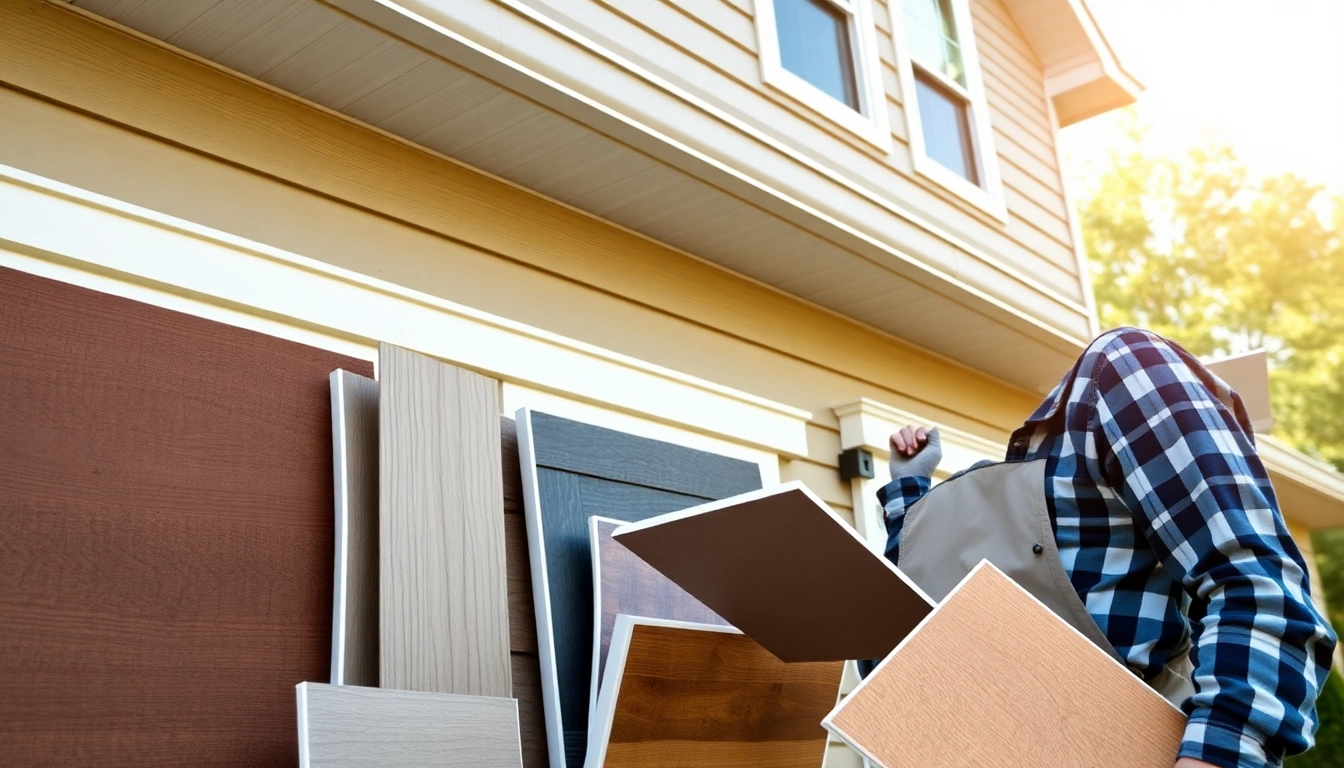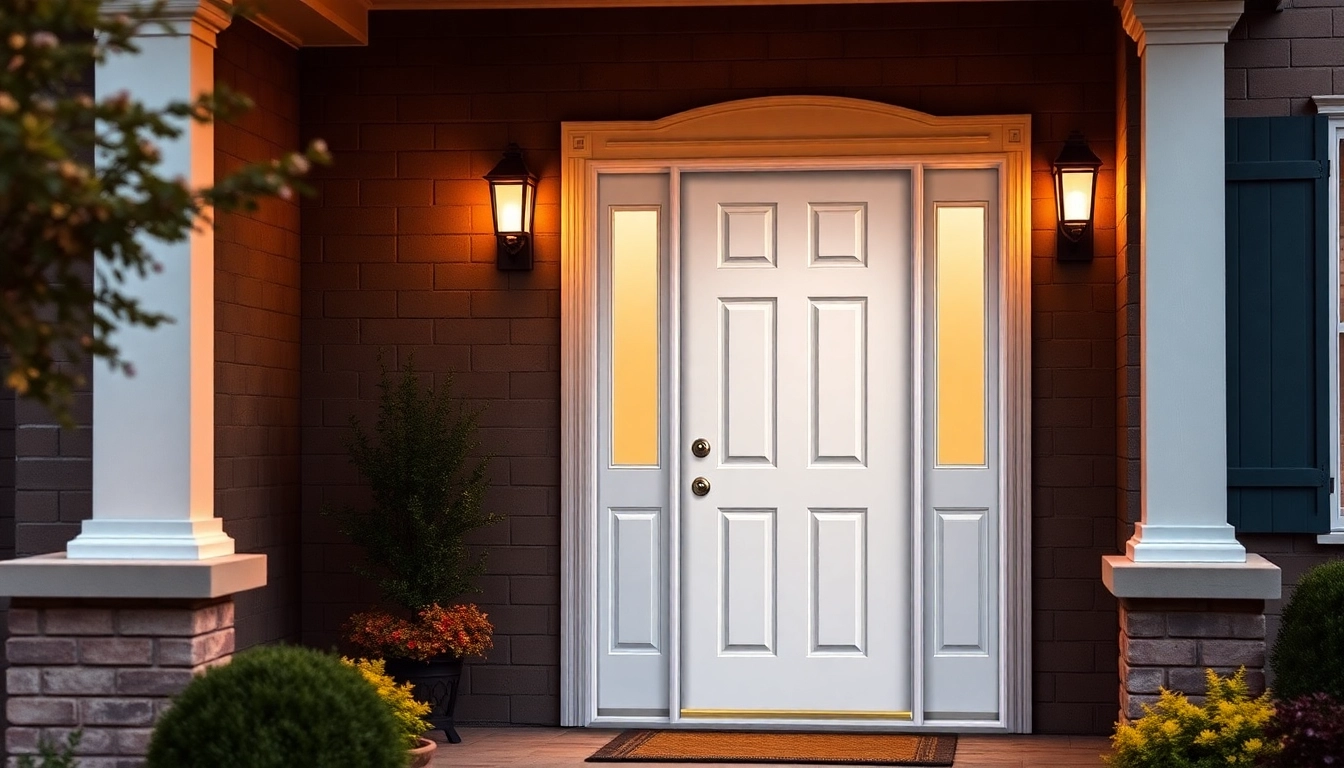Understanding the Role of a Siding Contractor
When it comes to enhancing the durability, energy efficiency, and aesthetic appeal of your home, selecting the right siding is a crucial decision. Yet, the importance of working with a qualified siding contractor cannot be overstated. A siding contractor does more than just install new exterior layers; they assess your home’s structural needs, recommend the best materials, and ensure the installation is flawless for long-term performance. From initial consultation to project completion, a knowledgeable contractor manages every aspect, ensuring that your investment yields the desired results and your home’s exterior remains resilient against weather, pests, and other environmental challenges.
Understanding the multifaceted role of a siding contractor helps homeowners make informed decisions, avoid costly mistakes, and secure superior craftsmanship. In this comprehensive guide, we’ll delve into their core responsibilities, the variety of siding materials they work with, and how choosing a skilled professional can transform your home’s exterior into a beautiful, durable, and energy-efficient façade.
What Does a Siding Contractor Do?
A siding contractor plays a pivotal role in the exterior remodeling of residential and commercial properties. Their primary responsibilities include assessing the existing condition of your home’s exterior, advising on the most suitable siding options, skillfully executing installation or replacement projects, and providing ongoing maintenance advice.
Initial Consultation and Site Assessment
Before any work begins, the contractor conducts a detailed inspection of your home’s current siding and underlying structures. They check for issues such as moisture intrusion, rot, or structural damage that could affect the new installation. Accurate assessment informs a tailored solution that aligns with your aesthetic preferences, budget, and the building’s functional needs.
Material Selection and Recommendations
A professional siding contractor guides homeowners through the vast array of siding materials available—from traditional wood and cedar to modern vinyl, fiber cement, and metal options. They consider factors like climate, home architecture, maintenance requirements, and cost to recommend the best fit.
Installation and Replacement
Qualified contractors manage the entire installation process, ensuring precise measurement, proper alignment, and secure fastening. They are trained to handle various siding types, each with specific installation protocols, to ensure a seamless finish. Their expertise minimizes errors, prevents water infiltration, and maximizes durability.
Quality Assurance and Compliance
Adhering to manufacturer guidelines and local building codes is critical. Siding contractors ensure that all work complies with safety standards and warranties, safeguarding your investment and providing peace of mind.
Post-Installation Maintenance and Repairs
Beyond installation, they offer maintenance services, minor repairs, and inspections that prolong the lifespan of your siding. Regular upkeep—like cleaning, sealing, and repairing damages—prevents larger issues down the line.
Types of Siding Materials Offered
Modern siding options are diverse, each with unique properties, aesthetic qualities, and price points. An experienced siding contractor typically offers a comprehensive range of materials to cater to different preferences and requirements.
Vinyl Siding
Vinyl siding is one of the most popular choices nationwide due to its affordability, low maintenance, and variety of styles. It resists rot and pests, and modern formulations provide excellent UV stability. Cost-wise, vinyl siding can range from as low as $2.50 per square foot to $10.75, making it an attractive option for budget-conscious homeowners.
Fiber Cement Siding (Concrete-Based)
Fiber cement combines durability with aesthetic versatility. It mimics wood or stucco finishes, resists fire, moisture, and pests, and requires minimal upkeep. Brands like James Hardie have set industry standards, and installation costs typically range from $5 to $15 per square foot.
Wood and Cedar Siding
Offering timeless charm, wood siding is favored for its natural beauty and ease of customization. Cedar specifically is noted for its resistance to pests and decay. However, it demands regular maintenance to preserve appearance and integrity. Pricing varies depending on quality and style but generally ranges between $6 and $12 per square foot for materials alone.
Metal Siding
Steel and aluminum sidings provide exceptional strength and a modern look. They are fire-resistant, low-maintenance, and environmentally sustainable since they are often recyclable. Metal siding costs range approximately from $4 to $10 per square foot.
Cedar and Other Natural Materials
Natural sidings like cedar and other exotic woods offer unmatched aesthetic appeal, especially for traditional or rustic designs. They require periodic sealing and treatment but deliver a unique character that retains value over decades.
Factors to Consider in Material Selection
Selecting the right siding material involves analyzing multiple factors beyond style—consider your climate, maintenance capacity, budget, and long-term goals.
Climate and Environmental Conditions
Homes located in humid or coastal regions benefit from moisture-resistant materials like fiber cement or vinyl, which resist rot and corrosion. Areas prone to wildfires should consider fire-resistant options such as fiber cement or metal siding.
Architectural Style and Aesthetic Preferences
Traditional homes often suit wood or cedar sidings that lend historic charm, while contemporary buildings may opt for sleek metal or fiber cement finishes for a modern look.
Maintenance and Durability
If low upkeep is a priority, vinyl or metal sidings are ideal. Those willing to perform regular maintenance may select wood for its authenticity, knowing it requires sealing and painting at intervals.
Cost and Budget Constraints
Careful budgeting involves considering both initial costs and long-term expenses. While some materials may be more affordable upfront, their maintenance costs over years should influence your decision.
Cost Comparison and Budget Planning
Understanding the financial aspect is pivotal. An accurate estimate depends on the home’s size, chosen material, region, and labor costs. Here are typical price ranges to help you plan:
Average Costs for Siding Installation
- Vinyl siding: $2,500–$10,750 for 1,000 sq ft
- Fiber cement: $5,000–$15,000 for the same area
- Wood or cedar: $6,000–$12,000
- Metal siding: $4,000–$10,000
For larger homes, these costs scale accordingly, with a 2000 sq ft house often ranging from $10,000 to over $40,000 depending on material choices.
Additional Expenses
Factors such as removal of old siding, insulation upgrade, and minor repairs can add to the total. It’s also vital to consider local labor rates, which vary significantly across regions.
Budgeting Tips
Request multiple, detailed estimates from reputable contractors, review what is included, and allocate a contingency fund for unforeseen issues. Prioritize quality installation to ensure the longevity of your siding investment.
Installation Process and Best Practices
Professional installation is key to maximizing siding lifespan and appearance. Here’s an overview of the typical process, along with tips for homeowners to understand and prepare.
Step-by-Step Siding Installation Procedure
- Preparation and Site Setup: Clearing the area, protecting landscaping, and inspecting the structure.
- Removal of Old Siding: Carefully taking down outdated or damaged siding, inspecting sheathing for damage.
- Insulation and Moisture Barrier Installation: Adding or upgrading insulation, applying weather-resistant barriers to improve energy efficiency.
- Measuring and Cutting Materials: Precision in measurement ensures a uniform and seamless appearance.
- Installing New Siding: Securing materials with recommended fasteners, staggering joints, and ensuring proper ventilation.
- Finishing Touches: Adding trim, painting if necessary, and performing a final inspection for quality assurance.
Common Challenges and How to Avoid Them
Challenges such as improper ventilation, incorrect fastening, or inadequate weatherproofing can compromise the siding’s performance. To avoid these pitfalls:
- Always hire licensed, experienced siding contractors familiar with local building codes.
- Ensure they follow manufacturer installation guidelines.
- Verify proper flashing and sealing around windows, doors, and vents.
- Schedule inspections at various project stages to catch issues early.
Ensuring Longevity and Proper Maintenance
Prolonging the lifespan of your siding involves regular inspections, cleaning with gentle detergents, and prompt repairs of damages. Maintaining your siding not only preserves curb appeal but also prevents costly structural issues.
Pricing, Estimates, and Project Timeline
Understanding the typical costs and timeframes helps you plan effectively. Here’s what you can expect:
Average Costs for Siding Installation
As previously detailed, typical costs vary depending on material and home size. For precise figures tailored to your project, consult multiple contractors for detailed quotes.
Requesting Accurate Quotes and Assessing Value
When soliciting estimates:
- Provide detailed information about your home’s size and current siding condition.
- Ask for itemized breakdowns covering materials, labor, removal, and any additional work.
- Verify the contractor’s licensing, insurance, and reputation.
Expected Project Timeframes
Typically, siding installation on a standard-sized home can take from a few days to a week. Larger projects or those involving extensive repairs may require additional time. Proper planning and clear communication with your contractor ensure the timeline remains on track.
Why Choose Our Siding Contractor Services
Our company prides itself on delivering superior craftsmanship, reliable service, and lasting results. Here’s what sets us apart:
Our Unique Value Proposition
- Certified and experienced siding specialists familiar with all major materials.
- Use of high-quality products and adherence to manufacturer standards.
- Transparent estimates with no hidden fees.
- Dedicated project management ensuring minimal disruption and timely completion.
Customer Testimonials and Success Stories
Homeowners regularly cite our professionalism, precision, and attention to detail. A recent project involved replacing aging cedar siding with durable fiber cement, significantly improving energy efficiency and curb appeal, all completed within the planned schedule and budget.
Contact Us for a Free Consultation
Ready to upgrade your home’s exterior with expert siding installation? Reach out today for a free estimate and consultation. Our team is committed to providing personalized service tailored to your needs and budget.


